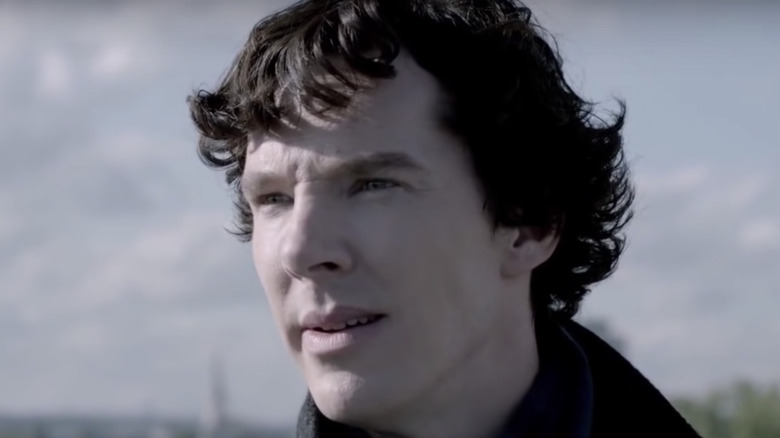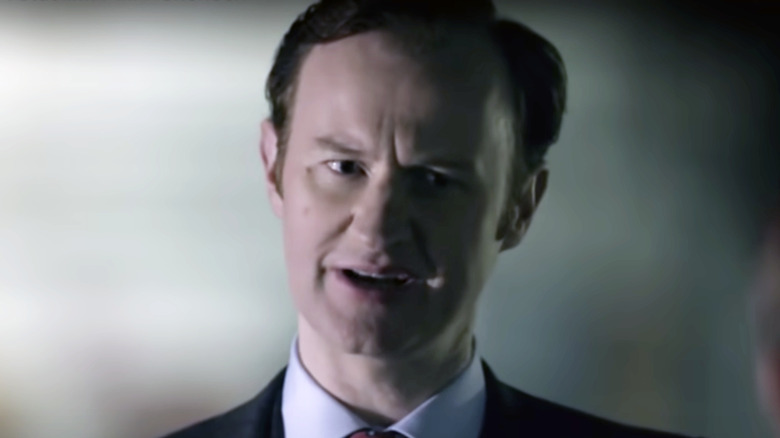The Sherlock Character You Likely Didn't Know Was Played By The Show's Co-Creator
Besides rummaging through realities in "Doctor Strange in the Multiverse of Madness" and casting spells he certainly shouldn't be in "Spider-Man: No Way Home," Benedict Cumberbatch also has a more grounded iconic role that we've not seen him reprise for some time. It's been five years since we last saw the star headed down Baker Street in "Sherlock" as the legendary detective in a modern era, and there's still no word on whether we're going to see him or his good friend Watson ("Black Panther" and "Captain America: Civil War" star, Martin Freeman) ever again.
Part of the reasoning behind this must, of course, fall to the show's creators, who sparingly churned out modern takes on some of Arthur Conan Doyle's classic stories and the hero involved in them, which had the world hooked. Premiering in 2010, the show was met with critical acclaim, with the first season earning 93% on Rotten Tomatoes for its modern twist and the fantastic chemistry between the core duo. However, one significant addition to the series was Mark Gatiss, who not only co-created the show but also took on the role of one of Sherlock's most testing allies.
Co-creator Mark Gatiss played Sherlock's brother, Mycroft Holmes
Appearing in the show's first episode, "A Study in Pink," Mark Gatiss stepped into the final act as Sherlock's brother, Mycroft Holmes. Gatiss and co-creator Steven Moffat established Mycroft as a government official who has worked alongside the CIA and other secretive agencies worldwide. Seven years Sherlock's senior and just as arrogant and intellectual as the detective, Mycroft consistently bickers with his little brother throughout the series while still being a reluctant ally to him.
Speaking to NME in 2012, Gatiss described his character's relationship with Sherlock and how the sibling squabbles are really out of love. "All he wants to do is to bring him into the fold. To stop him being a loose cannon," he explained. "I'd like to find a way of showing more than we actually have that he's actually even cleverer than Sherlock — but the deductions are hard enough as it is!"

